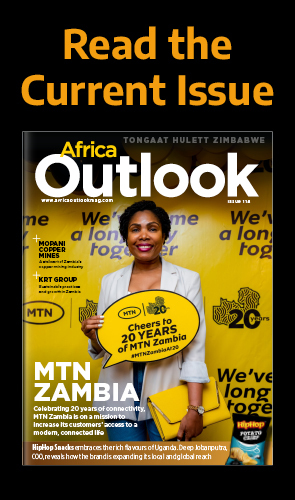Driven by a strong entrepreneurial spirit and results-orientated family culture, Betts Townsend has spent a significant amount of time working on how it is perceived as a business; while allowing its experience level and portfolio of large scale projects to speak for itself.
INVESTING FROM THE GROUND UP
Incepted by Howard Betts 20 years ago, a merger was actualised as a result of joint interests between Betts Projects and well regarded project management guru, John Townsend. “Betts Townsend was subsequently formed with a concerted focus on strengthening the initial backbone of the company by investing in training both our general staff and project managers to be the best they can be,” highlights Michael Taylor, Managing Director of Betts Townsends’ African Interest.
Growing from a simple installation company over the course of the first decade of business, Betts Townsend quickly progressed into a substantial construction business looking to take advantage of South Africa’s infrastructure trends, particularly in the retail and hospitality sectors. Post 2010 – since the World Cup infrastructure growth injection – the South African-based Company has been looking beyond the borders as part of its latest business development strategy: to capitalise on economic growth in East Africa after weathering the storm of time and capitalising on the emerging middle class movement.
“Depreciation of the rand had been a concern. However, Africa as a continent remains one of the world’s biggest growth markets; even after the recent GDP drop in South Africa. Kenya, Uganda and Tanzania are still exhibiting some of the highest GDP rates globally and we were able to apply the tools and skills we have learnt in South Africa to development opportunities in East Africa,” he says.
Leveraging its status as a 100 percent African-owned Company, Betts Townsend was able to gain a foothold in South Africa, Mauritius and Kenya; backed by a hands-on and dedicated project management team, with an aptitude for continuous improvement and learning. “Our position as an indigenous company means that we already know the pitfalls and challenges in the African market. In March 2014, I relocated to Nairobi in order to be at the forefront of business development here and set the benchmark as high as possible, while being situated as close to the clients as possible. Taking the helm as Managing Director in Africa, the Company is now gaining traction in this new market and we are seeing great interest in our work,” explains Taylor.
SHOPPING MALL POPULARITY
Traditionally, Betts Townsend has focused on construction of some of the largest shopping malls in South Africa; recognised in the country as one of the top firms in this regard. “Food and entertainment will always be a vital part of people’s lives from a social perspective and as a result of the emergence of the middle class, retail malls are becoming a popular destination. We have noticed a steady increase in both the number and scale of malls in South Africa in particular, and our latest project is our biggest yet: Bay West Mall is monumental in size and has a total value of in excess of ZAR 1.8 billion, which was delivered on time and on budget at the start of June 2015.”
By contrast, western countries outside of Africa have adopted online shopping as the consumer’s preferred choice of retail experience. In South Africa however, and in fact most African cities, consumers favour the social aspect due to good weather, and the security and safety an indoor mall can provide.
Taylor highlights: “We’ve had a phenomenal run of business in this sector, which reflects well in the high-profile institutional clients that we have formed relationships with, where news of our successful partnership is spread by word of mouth.”
These relationships are just the start of the strategic business partnerships Betts Townsend has been able to build.
Earning its leading position in South Africa has resulted in trusted financial debt support from 10 of the continent’s biggest banks.
CO-DEVELOPMENT MANAGERS
After decades of fostering quality relationships, this year the Company is set to share the development management function with the STANLIB fund on two notable projects in East Africa. “By teaming up with an internationally trusted and formidable partner such as this we are now able to work on projects in higher risk environments. Given that in Africa, financial institutions are perceived as highly risk adverse, we can anchor these risks through such relationships with our on the ground execution team,” Taylor details.
There are already two projects secured under this partnership: retail malls located in Uganda and Kenya.
“As the retail funds start recognising the shopping trends in Africa, we are very well positioned to handle new projects or cater for new entrants to the market off the back of our portfolio and prior reputation. We understand the requirements of these clients, from the financial aspect right through to the final result,” Taylor explains.
“A further trust case in point is Betts Townsend relationship with the Virgin Active Group whom are set to enter the east African market in two months time,” he adds.
For the first decade or so of business, Betts Townsend relied on retail developments for around 70 percent of its income. Now, the Company has a more diverse offering spanning recreational, commercial, industrial – particularly distribution centres – and hotels across three geographic locations. Additionally, a further 20 percent of work is generated from the hospitality industry where Betts Townsend has worked with the majority of national and international players in operation across Africa, in a whole host of project and development management roles.
FACE-TO-FACE BUSINESS
Currently among the top two project management firms in Kenya since moving into East Africa last year, Betts Townsend has made sure to aggressively address challenges in this new environment in order to strengthen its continuous improvement strategy. One element which Taylor says is key to doing business in any country is managing projects from the ground-up via face-to-face interaction: “This is imperative, especially when moving into new markets. We have witnessed a number of international firms who come into Africa without prior experience and operate at an arm’s length. By comparison, we operate from the ground up, making sure that we have a project management office at every single site; and repeat business has been rewarded from this.
“The way we present ourselves and execute projects has assured clients that our quality control and procedures are far more fastidious than our competitors,” he emphasised.
Nairobi City Council has been particularly helpful in growing Kenya’s general infrastructure, embracing the ideology of Kenya as ‘the hub of East Africa’. “The government places huge emphasis on continually reviewing sustainability practices and renewable energy is a prerequisite to any build. Considering that we often have to create the relevant power and water infrastructure ourselves, there have been clear guidelines to achieve clean energy goals from the start. Kenya is taking a leaf out of the international book and running with it, even deploying a fibre line across the whole of the country,” comments Taylor.
One of the most noteworthy of projects Betts Townsend is completing in East Africa at present is the construction of The Hub in Kenya, the country’s first high-end, super regional shopping centre. This strategic 70,000m2 project promises great things, and the Company is proudly on track to deliver on time and under budget in three months time. “There are very few projects currently valued in excess of US$50 million in Kenya, and with The Hub valued well beyond this once capitalised the project will fit nicely within our portfolio and pave the way forward for future projects of this size in the country,” says Taylor.
Elsewhere in East Africa, the Company has approximately 10 projects in motion, worth an average of US$25 million, over and above the aforementioned. “We are proud to have secured close to US$400 million business in Kenya in our first year of business. We really have got off on the right foot and set the bar high,” he adds.
EMPOWERING THE TEAM
A big plus for Taylor is the strong backing he receives from the East Africa team, along with his partners and given that the region is often criticised for exhibiting skills shortages, he has been truly impressed by staff willingness to learn and their IT literacy as he further explains: “East Africans take immense pride in their work and retain the enthusiasm needed to succeed. Subsequently, under the guidance of expats and local components, our total team complement of 80 staff are receptive and fully understand the market needs. For our local regional-based employees to come up to international standards over a two year period is a fantastic achievement.
“And the training is two-way, which is exactly what a skills transfer should be.”
Based on the inherent growth of its East African business, Betts Townsend hopes its wider footprint on the continent will outperform the current South African business given time. “We have picked up some wonderful projects in the past two decades, but it’s time to unlock Africa’s potential in emerging markets and East Africa will be the key to long-term growth. We are eyeing opportunities in Tanzania, Rwanda and Uganda where the formal retail market is very strong,” says Taylor.
The next few years will be paramount to identifying the best opportunities in these markets, and growth will be based on successful delivery of current projects. “Due to their size, our projects are always in the public eye, therefore we can never falter in our performance otherwise this will quickly tarnish our reputation. By managing from the ground-up with a team of professionally-minded people, we will be sure to keep our finger on the pulse to secure future profitability,” he concludes.
For further information, visit Betts Townsend’s brand new website: http://www.bettstownsend.com
































